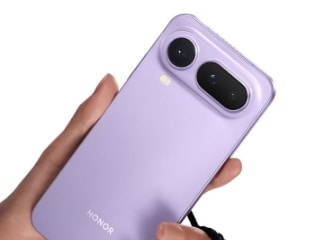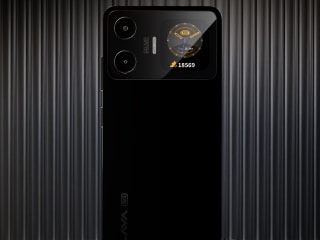- Home
- Mobiles
- Mobiles News
- Apple Led Global Smartphone Market in Q4 2019: Canalys, Strategy Analytics
Apple Led Global Smartphone Market in Q4 2019: Canalys, Strategy Analytics
Samsung and Huawei ranked second and third respectively, according to Strategy Analytics and Canalys.

The iPhone 11 series lifted Apple to the lead in global smartphone sales
After many successive quarters of Asian dominance, the global smartphone market saw a resurgence from American tech giant Apple, which started the smartphone revolution with the iPhone in 2007. The Cupertino-based company took the lead in the global smartphone segment by shipments, overtaking Samsung and Huawei in Q4 2019. Apple accounted for a greater market share for the final quarter of 2019 thanks to strong demand and pricing for its iPhone 11 series, according to two independent research and analytics firms, Canalys and Strategy Analytics.
Although Canalys and Strategy Analytics report different figures for global smartphone shipments, the data released by both firms state that Apple led the segment in Q4 2019, ahead of Samsung and Huawei which ranked second and third respectively. Xiaomi and Oppo completed the top five, while the combined shipments of all other smartphone vendors accounted for around 30 percent of all shipments.
![]()
Photo Credit: Canalys
As per Canalys, Apple shipped 78.4 million smartphones in Q4 2019, giving it a market share of 21.3 percent. Samsung is reported to have shipped 70.8 million smartphones, giving it a share of 19.2 percent, while Huawei is said to have shipped 56 million units, giving it a share of 15.2 percent. Xiaomi followed with a 9 percent share (with 33 million units shipped), and Oppo was last of the top five with 8.2 percent share (with 30.3 million units shipped).
Strategy Analytics has a few different numbers, but the positions of the smartphone brands remain the same, as we mentioned earlier. Apple is said to have shipped 70.7 million smartphones in Q4 2019, giving it an 18.9 percent share, while Samsung shipped 68.8 million units, giving it a share of 18.4 percent, and Huawei shipped 56 million handsets, giving it a share of 15 percent. Xiaomi was reported to have a 8.8 percent share (with 33 million units shipped), while Oppo had a 8.1 percent share (with 30.5 million units shipped).
![]()
Photo Credit: Strategy Analytics
Apple's lead in the segment has been put down to strong demand and sales on the iPhone 11 series, particularly the iPhone 11 (Review) itself. Priced at Rs. 64,900 onwards in India, the iPhone 11 has helped Apple's rise in popularity thanks to its competitive pricing. The promise of capable hardware and current-generation specifications at lower prices have made Apple an attractive option for buyers once again, even while its top-end devices continue to be among the most expensive in the market.
Both reports suggest that Samsung retained its market share going from Q4 2018 to Q4 2019, but its lack of growth allowed Apple to take the lead. While Huawei had strong shipments, its US ban has affected growth and shipments globally. Xiaomi - the market leader in India - saw significant growth, while Oppo managed to hold on to its place in the top five.
What is also noteworthy about the reports by Canalys and Strategy Analytics is the shrinking footprint of all other smartphone vendors outside the top five. Just five manufacturers account for around 70 percent of the global market, while every other manufacturer combined accounts for only 30 percent - less than the share held by Apple and Samsung alone.
Counterpoint shared similar statistics in its Q4 2019 report, as well as its calendar year report, where it matches with Canalys and Strategy Analytics to claim Huawei displaced Apple to take the second spot in global smartphone shipments for the whole year.
Catch the latest from the Consumer Electronics Show on Gadgets 360, at our CES 2026 hub.
Related Stories
- Samsung Galaxy Unpacked 2025
- ChatGPT
- Redmi Note 14 Pro+
- iPhone 16
- Apple Vision Pro
- Oneplus 12
- OnePlus Nord CE 3 Lite 5G
- iPhone 13
- Xiaomi 14 Pro
- Oppo Find N3
- Tecno Spark Go (2023)
- Realme V30
- Best Phones Under 25000
- Samsung Galaxy S24 Series
- Cryptocurrency
- iQoo 12
- Samsung Galaxy S24 Ultra
- Giottus
- Samsung Galaxy Z Flip 5
- Apple 'Scary Fast'
- Housefull 5
- GoPro Hero 12 Black Review
- Invincible Season 2
- JioGlass
- HD Ready TV
- Laptop Under 50000
- Smartwatch Under 10000
- Latest Mobile Phones
- Compare Phones
- Tecno Spark Go 3
- iQOO Z11 Turbo
- OPPO A6c
- Samsung Galaxy A07 5G
- Vivo Y500i
- OnePlus Turbo 6V
- OnePlus Turbo 6
- Itel Zeno 20 Max
- Lenovo Yoga Slim 7x (2025)
- Lenovo Yoga Slim 7a
- Lenovo Idea Tab Plus
- Realme Pad 3
- Garmin Quatix 8 Pro
- NoiseFit Pro 6R
- Haier H5E Series
- Acerpure Nitro Z Series 100-inch QLED TV
- Asus ROG Ally
- Nintendo Switch Lite
- Haier 1.6 Ton 5 Star Inverter Split AC (HSU19G-MZAID5BN-INV)
- Haier 1.6 Ton 5 Star Inverter Split AC (HSU19G-MZAIM5BN-INV)


















